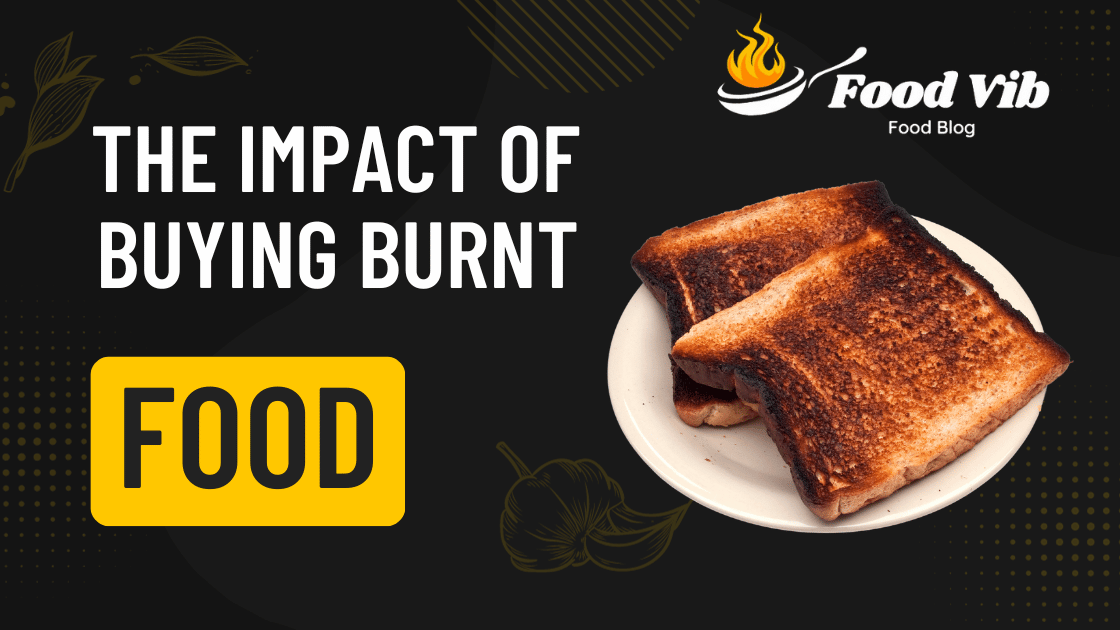The Devastating Impact of Bad Swiss Food

A significant problem that has been harming a lot of people in Switzerland is The Devastating Effect of Bad Swiss Food. Eating tainted or low-quality food may have detrimental effects on one’s health and overall well-being. In addition to causing acute symptoms like food poisoning, it may also result in long-term health issues. This is concerning because Switzerland is renowned for having strict standards for the quality and safety of its food.

However, the terrible effects of poor Swiss food cannot be disregarded, especially with the recent surge in food poisoning incidents and careless food handling. To protect its population from future damage, the Swiss government must implement stringent steps to guarantee the safety and quality of the country’s food supply.
The Devastating Impact of Bad Swiss Food
Switzerland is a country in central Europe that is well-known for its exquisite cuisine, precise engineering, and stunning scenery. But beyond the surface of flawless Swiss food, a culinary enigma has quietly developed, forcing residents and guests alike to contend with the **unpleasant consequences of substandard Swiss cuisine
The Palate’s Discontent: A Closer Look
Dearth of Diversity
The lack of variety in traditional meals is one of the most obvious problems with Swiss cuisine. There aren’t many alternatives for people looking for a more varied culinary experience in the area, even though traditional dishes like fondue and raclette have earned their spot on the international culinary scene.
Quality Quandaries
Beyond the restricted range, questions have been raised about the quality of ingredients used in Swiss kitchens. The preference for frozen and processed products has supposedly made food less nutritious and fresher, but it has also made many recipes less tasty. This compromise affects the dish’s flavor as well as raises questions about the long-term health effects of ingesting it.
Culinary Consequences: Health and Well-being
Nutritional Shortcomings
The nutritional content of Swiss food has suffered as a result of this compromise, despite its reputation as healthful. Overindulgence in cheese and meat-based foods has led to nutritional imbalances that may have an impact on the general public’s health. Mitigating these risks requires striking a balance with a more diversified and nutrient-rich palate.
Culinary Tourism at Risk
A challenge to Switzerland’s reputation in culinary tourism is the lack of innovation in Swiss kitchens, while the world’s culinary scene becomes more vibrant and diversified. Those looking for distinctive and unforgettable culinary experiences can be let down and go for livelier places with a more diverse culinary scene.
A Call to Culinary Evolution
Embracing Innovation
To tackle the stagnation in Swiss cuisine, chefs and restaurateurs need to be open to new ideas. The nation’s culinary scene may be revitalized by adding modern twists to age-old recipes and using fresh, locally obtained products. This not only accommodates changing consumer tastes but also elevates Swiss food to the forefront of the world’s culinary scene.
Culinary Education and Awareness
Enhancing Swiss cuisine requires a deliberate effort in gastronomic education and consciousness. The culinary narrative may be changed by pushing chefs to experiment with different cooking methods, obtain organic food locally, and prepare it all at once. Furthermore, public education campaigns emphasizing the value of patronizing high-quality businesses may generate demand for more sophisticated eating experiences.
Charting a Course for Culinary Excellence
Navigating the effects of substandard Swiss cuisine reveals that a multimodal approach is the best way to solve the problem. Achieving culinary excellence requires teamwork, ranging from expanding menu options and emphasizing ingredient quality to welcoming culinary innovation and raising awareness.
The emphasis on Swiss food must remain unwavering in the worldwide quest for outstanding gastronomy. Switzerland may regain its status as the ultimate gastronomic destination by tackling the problems head-on and encouraging a renaissance in cuisine.
Must Read: Exploring the Delicious Cuisine of Pittsburgh1
How Does Bad Swiss Food Affect Your Health in the Long Run?
The effects of eating poorly prepared Swiss cuisine go beyond short-term gastronomic ennui and affect long-term health. Examining the details of how poor-quality Swiss food impacts health, it is clear that dietary decisions have a significant impact on overall health results.
Nutritional Deficiencies
Nutritional deficits are one of the main issues surrounding poor-quality Swiss food. Traditional Swiss cuisine often has a strong emphasis on cheese and meat, which may cause dietary imbalances. Lack of a variety of fruits, vegetables, and whole grains may lead to vitamin, mineral, and fiber deficits that affect long-term health.
Elevated Risk of Health Conditions
Frequent use of processed and low-nutrient foods, which are common in poor-quality Swiss cuisine, may increase the risk of several diseases. specific foods that include high amounts of salt, saturated fats, and additives might aggravate hypertension, cardiovascular problems, and other disorders linked to a specific way of life. Long-term development of chronic health issues may be facilitated by a persistent pattern of unhealthy eating choices.
Weight Management Challenges
Swiss cuisine might be difficult to control your weight, especially if it isn’t diverse and well-balanced nutritionally. Overemphasis on high-calorie foods combined with a lack of healthy options may eventually lead to weight gain. A more balanced and health-conscious approach to food choices is crucial given the accompanying health concerns, which include issues connected to obesity.
Impact on Mental Well-being
Research on the connection between nutrition and mental health is developing, and eating poorly in Switzerland may have effects there as well. Diets deficient in important nutrients, such as antioxidants and omega-3 fatty acids, have been linked to a higher risk of mental health issues. Consequently, consuming nutritionally inadequate Swiss food for an extended period may eventually lead to mental health issues.
Long-term Solutions for Culinary Well-being
To tackle the long-term health effects of poor Swiss cuisine, a comprehensive strategy is required. As was previously said, culinary development is essential to allaying these worries. Swiss cuisine has the potential to become a beneficial factor for long-term health by using fresh and locally produced foods, fostering a more balanced nutritional profile, and varying their menus.
Finally, the consequences of eating poor-quality Swiss food go much beyond the occasional annoyance. The long-term health effects highlight how critical it is to undergo a culinary revolution that emphasizes nutritional balance, welcomes creativity, and promotes a holistic approach to well-being. With more people and societies realizing the connection between nutrition and health, there is a growing consensus that there should be higher standards for cooking.
Must Read: The Surprising Reasons Chinese Food Makes You Hungry
10 Signs of Bad Swiss Food and Its Devastating Impact on Your Health
Switzerland, known for its accuracy and beautiful scenery, has a long history of culinary excellence. But behind the surface of fine Swiss cuisine are warning indications that, if disregarded, may have disastrous consequences for your health. Let’s examine the 10 telltale indicators of poor-quality Swiss cuisine and the possible health risks.
1. Excessive Reliance on Cheese and Meat
An over-focus on meals that are heavy on cheese and meat is a dead giveaway of poor-quality Swiss cuisine. Although they are mainstays of Swiss cuisine, an overemphasis on them may result in nutritional imbalances and exacerbate health problems including high cholesterol and cardiovascular problems.
2. Limited Menu Diversity
Menu variety is one of the easiest ways to identify bad Swiss cuisine. When there’s little opportunity for creativity and tradition to rule the menu, the food becomes boring. In addition to affecting taste buds, this lack of diversity reduces the range of vital nutrients needed for general health.
3. Processed Ingredients Pervade
Plates in Switzerland often include processed and frozen products since convenience often trumps quality in culinary practices. Using such products jeopardizes the meals’ freshness and exposes customers to preservatives and chemicals, which might have long-term health effects.
4. Lack of Locally Sourced Produce
Disconnecting from fresh, local products is another cause for concern. Bad Swiss cuisine often ignores how abundant locally obtained foods may be. In addition to affecting flavor, the lack of fresh fruits, vegetables, and herbs deprives customers of vital vitamins and minerals.
5. Unappealing Presentation
A great eating experience requires a strong visual component. Poor quality Swiss cuisine may be poorly presented, showing a lack of respect for culinary expertise. A disregard for appearance might be a sign of more serious issues with ingredient quality and cooking methods than just aesthetics.
6. Inadequate Culinary Innovation
A major marker of poor-quality Swiss cuisine is a stasis in culinary innovation. A lack of excitement on the plate might be the consequence of recipes that are not updated and modified. To maintain Swiss cuisine’s relevance and appeal to modern palates, it must embrace current culinary trends.
7. Overly Salty or Fatty Dishes
Swiss cuisine is blatantly negligent when it comes to the excessive use of salt and harmful fats. Obesity and hypertension are two health problems that are exacerbated by high salt and bad fats. Savvy eaters should steer clear of foods that lean too much in one direction or the other toward fat and salt.
8. Inattentiveness to Dietary Preferences
When it comes to catering to dietary needs, a restaurant or food scene that doesn’t put its customers’ health first is telling. The greatest restaurants in Switzerland understand and accommodate a wide range of dietary requirements, guaranteeing a satisfying and health-conscious eating experience.
9. Inconsistency in Flavor Profiles
Reliability in taste profiles is a sign of great food. Inconsistencies in taste might indicate problems with the quality of the ingredients or the skill of the chef in poorly prepared Swiss cuisine. To establish a long-lasting culinary reputation, consistency is essential.
10. Limited Awareness of Culinary Trends
The reputation of Swiss cuisine may suffer if international culinary trends are not recognized and incorporated. Swiss cuisine stays current and in demand worldwide by keeping abreast of global culinary advancements. This also keeps the cuisine fascinating.
Navigating Towards Culinary Wellness
Achieving gastronomic well-being begins with identifying these 10 telltale symptoms of poor-quality Swiss cuisine. We can create a healthier and more fulfilling eating experience as customers by holding Swiss businesses accountable for their quality, innovation, and nutritional balance. The future of Swiss cuisine is up to chefs and discriminating diners, working together to ensure that the detrimental effects of poor food on health will never again occur.
Must Read: The Ultimate List of Foods Without Calcium and Iron
FAQ (Frequently Asked Question)
What economic consequences are associated with food wastage?
Food waste costs farmers, wholesalers, and consumers money at every stage of the supply chain. This further exacerbates the economic effect by depleting labor, water, and energy, among other resources.
How does food waste contribute to global hunger and food insecurity?
Otherwise, the food may have been used to combat world poverty and food shortages. Food insecurity is made worse by inefficiencies in distribution and consumption, especially in developing nations.
Can you elaborate on the social implications of food wastage?
Food waste wastes resources that may be used to feed the hungry, which in turn promotes social inequity. It also brings up moral questions on how resources should be distributed and how society can reduce waste.
What role does consumer behavior play in the issue of food waste?
Food waste is mostly caused by consumer behaviors including selective preferences, overspending, and poor storage. Resolving these habits is essential to reducing food waste's negative effects.
How does food loss in the agricultural sector impact global food production?
The loss of food during planting and harvesting reduces the amount of food produced overall. This affects local and international markets via cascading effects on food supply and cost.
How does food waste vary between urban and rural areas?
Due to variables including higher consumption rates, urban locations often produce more food waste, while rural areas may suffer from more food loss during production and transit. It is essential to comprehend these variations in order to create focused answers.
What initiatives has Switzerland implemented to combat food waste, and what impact have they had?
Switzerland has undertaken a number of measures, including commercial partnerships, awareness campaigns, and laws promoting responsible consumption. Assessing the impact of these actions helps in determining how successful they are.
How does food waste in Europe compare to other regions globally?
Europe contributes much to the world's food waste. Comparing Europe's food waste rates to those of other areas helps determine the extent of the problem and the need for focused remedies.
In which ways does food waste impact biodiversity and ecosystems?
Food waste left in natural areas may upset ecosystems, harming animals and degrading the soil. Creating sustainable waste management solutions requires an understanding of the ecological effects of food waste.





2 Comments